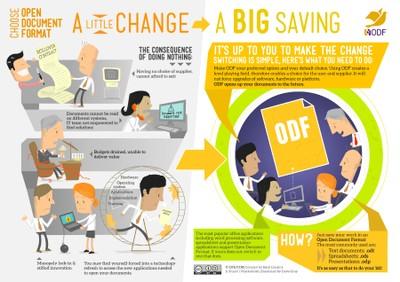The European Commission should stop using PDF for online application forms, say five European groups campaigning for open standards and free and open source software. The EC should instead switch to modern web tools such as HMTL5 and XForms. The EC’s PDF forms often include elements that are only implemented in proprietary software from a particular vendor, the groups say.
“This is a problem for many applicants who end up bereft of choice or excluded from the process altogether. It does not have to be this way, when a number of efficient alternatives exist that are entirely based on open standards”, write OpenForum Europe, the FSFE, April, Edri and the Open Source Business Alliance. The coalition represents privacy and civil rights organisations, ICT firms, software developers and users of free and open source. Their open letter to the EC was published on Document Freedom Day, 25 March.
The groups are asking the EC to adhere to its promise to use open standards. “(These) are formats and protocols which everybody can use free of charge and restriction and for which no specific software from a particular vendor is required”, the groups write. “They are essential for interoperability and freedom of choice based on the merits of different software applications.”
EU citizens and companies should not be forced to install and use software from any specific vendor, the groups write. They should have the right to communicate and interact with its administration using open standards exclusively. In particular, the coalition writes, the EC should lead the way, and use open standards in all its digital communication and services.
Armamentarium


The call to replace PDF follows the launch in September of OpenForum Europe’s FixMyDocuments campaign, urging Europe's public administrations to make better use of open document formats. Originally available in English, the website has since been translated into seven more languages, including Italian, Romanian, Greek and Croatian.
On Document Freedom Day, the organisation also launched a toolkit, targeting the adoption of the Open Document Format by the public sector. The toolkit contains a folder of principles and infographic, that can be used to educate public sector workers on the options and opportunities for ODF use.
More information:
Statement by five groups campaigning for open standards and free and open source software
Statement by five groups campaigning for open standards and free and open source software (in French)
ODF toolkit

